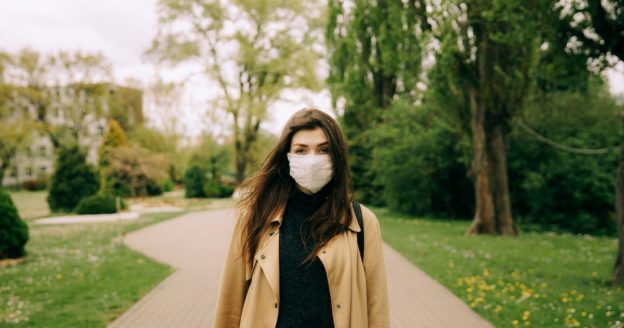When the coronavirus pandemic started, researchers didn’t know much about the virus and how it could affect people in the long run. Researchers still don’t know the longer-term effects of the virus. All we know is what can happen in the first few months and years after contracting COVID-19. But we are continuing to learn.
Like other viruses, it can take a long time to fully recover from COVID-19. You may deal with headaches, fatigue and nervousness for months after your diagnosis. Furthermore, one study found that over half of a U.S.-survivor sample reported symptoms of depression months after recovering from the virus. Those with more severe infections were at greater risk for depression symptoms.
If you are currently struggling with depression following COVID-19, you might wonder if the virus is to blame. The short answer: It could be. Let’s learn more about what we know in terms of the COVID and depression connection, and where to find help for COVID depression (and anxiety).
Is There a Link Between COVID-19 and Depression?
Since COVID-19 has only been around for a few years, researchers have yet to study the long-term effects of the virus on the brain. But, they are slowly learning more and more, and it’s obvious that there’s a connection between COVID-19 and depression.
Not only did the study above find that people with the virus were more likely to experience symptoms of depression in the first few months after coronavirus, but many survivors also report cases of post-traumatic stress disorder, anxiety, insomnia, and obsessive-compulsive symptoms.
Additional studies show that intimate partner violence, suicidal thoughts, and the use of antidepressants have gone up significantly since the start of the pandemic. Bottom line: Those who have had COVID-19 appear at a higher risk for mental health problems following their recovery.
How Might Coronavirus Be Affecting the Brain?
Researchers believe there are two main reasons why people with COVID-19 are more likely to develop depression. The first is the body’s immune response to the virus itself. When you get sick, your immune system produces cytokines, chemokines and other proteins that promote inflammation. This happens with all types of viruses.
In people with COVID-19, experts have found that a special type of cytokine is released. Higher levels of this cytokine seem to be linked with more serious coronavirus infections. If your body doesn’t properly control these proteins, bad things can happen, such as:
- Nerve inflammation
- Disruption of the blood-brain barrier
- Peripheral immune cell invasion
- Impaired nerve transmission
- Hypothalamic-pituitary adrenal (HPA) axis dysfunction
- Microglia activation and indoleamine 2,3-dioxygenase (IDO) induction
Some of these you may recognize, others you may not. What’s important to know is that these disruptions can cause depression and other psychiatric disorders.
Another reason why some COVID-survivors are at a higher risk for depression is because of the stress of the virus. People who stay in the hospital, don’t get much rest, have concerns about infecting others or are socially isolated are more likely to suffer from poor mental health following COVID-19.
Post COVID-19 Treatment Program
If you are struggling with depression or another mental health condition following COVID-19, know that help is available. Awakenings Treatment Center has a specific track of care for ‘long haulers’ who are recovering from Long Covid. We can address all your needs in one place. Contact us today to learn more about our Post-COVID-19 Treatment Program.










